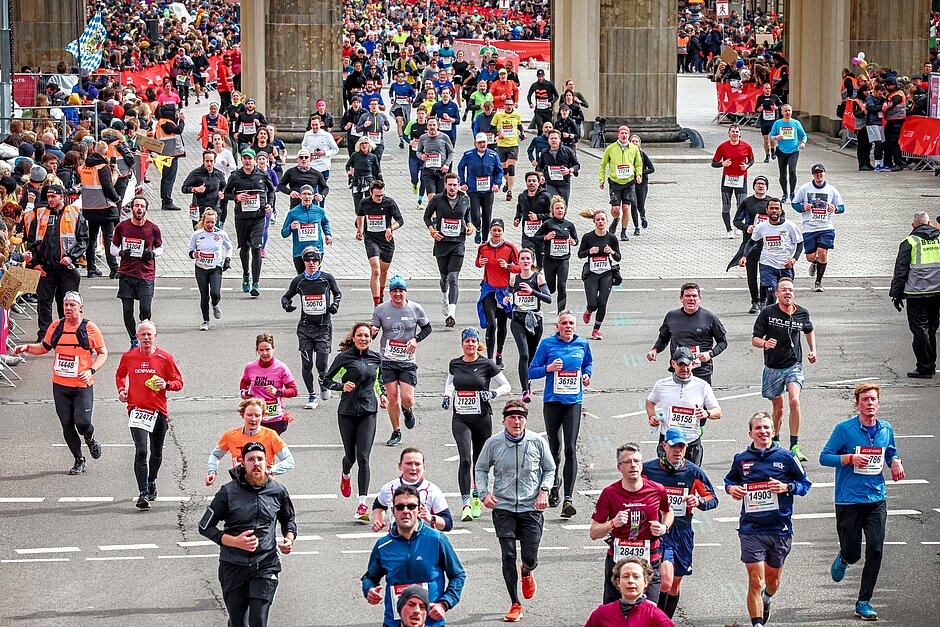
We move Berlin
At the GENERALI BERLIN HALF MARATHON, we inspire more than 35,000 participants to lead an active lifestyle. At the same time, we create considerable economic value in the capital.
In addition to athletes from over 100 nations, numerous spectators follow the event along the route - and generate revenue. For example in the catering sector. What is more, wherever possible, we also favour regional service providers and producers for our event. In addition, we cooperate with a number of Berlin hotels so that special contingents are available for our event.
We help where the shoe pinches
Together with the Berliner Stadtmission, we collect well-preserved running clothes and shoes to pass on to people in need.
Whether well-preserved hoodies, training jackets or pants - much of what lies unused in runners' wardrobes is urgently needed by others. All the discarded clothing and running shoes we collect together with the Berliner Stadtmission benefit needy and unhoused people who depend upon the support of such clothing closets. This both helps reduce social inequalities and conserves resources, as the clothes and shoes get a longer life.
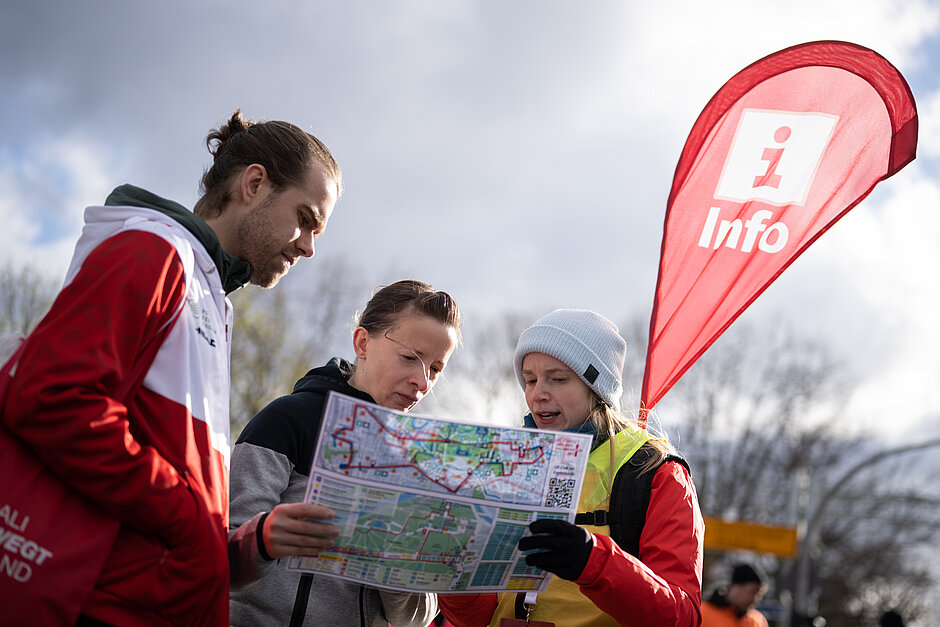
Green mobility
We have set up a free local transit BVG ticket as well as an event ticket for discounted travel by train.
There's no question about it: we are delighted to welcome participants from all over the world – even though we know full well that the journeys of the athletes and spectators account for by far the largest proportion of CO2 emissions at a sporting event like the GENERALI BERLIN HALF MARATHON. At events of this size, the CO2 footprint from travel is often higher than, for example, that of waste, accommodation and catering combined.
Accordingly, the journey to and from the GENERALI BERLIN HALF MARATHON poses one of the greatest challenges to emission reductions for the organisers. Our aim is therefore to create a wide range of offers that enable attractive and sustainable alternatives for all participants. For this we are also dependent upon the cooperation of all athletes.
Participants in the GENERALI BERLIN HALF MARATHON already receive a free local transit BVG ticket for travelling to and from the event. Participants can use all public transport in the Berlin fare zones A and B directly with their race bib on the day of the event (between 5am and 7pm). In addition, we have set up an event ticket for discounted travel by train.
Thermal blankets
For years, used thermal blankets have been pressed into bales and returned to the manufacturer where they are used again as a raw material for production.
The baling press is our champion in this process. The used thermal film foil blankets are pressed into bales and returned to the manufacturer. The recovered raw material is used to produce new thermal blankets. We do not put any year-specific branding on the foils so that the leftovers can be utilised in the following year.
Refreshment points
We offer refill stations for your own hydration systems at all refreshment points.
In addition, we only use cups made from recycled material, which we also collect separately and recycle. This serves our goal of continuously reducing the number of cups that end up as waste.
The most sustainable option is to use your own hydration system, as participants then demonstrably need fewer and often no cups at all. Accordingly, we want to support this by offering the option of refilling. At the same time, we are also aware that hydration systems are not an option for all runners.
That's why we only use cups made from recycled PET at all refreshment points and in the start and finish area. PET is a plastic that is particularly easy to recycle. To ensure that our cups are returned to the cycle after use, we have numerous volunteers along the route who ensure that as many cups as possible are collected. After the event, we then take them to our partner's recycling plant. There, the cups are turned into raw material for new cups or similar products such as bottles.
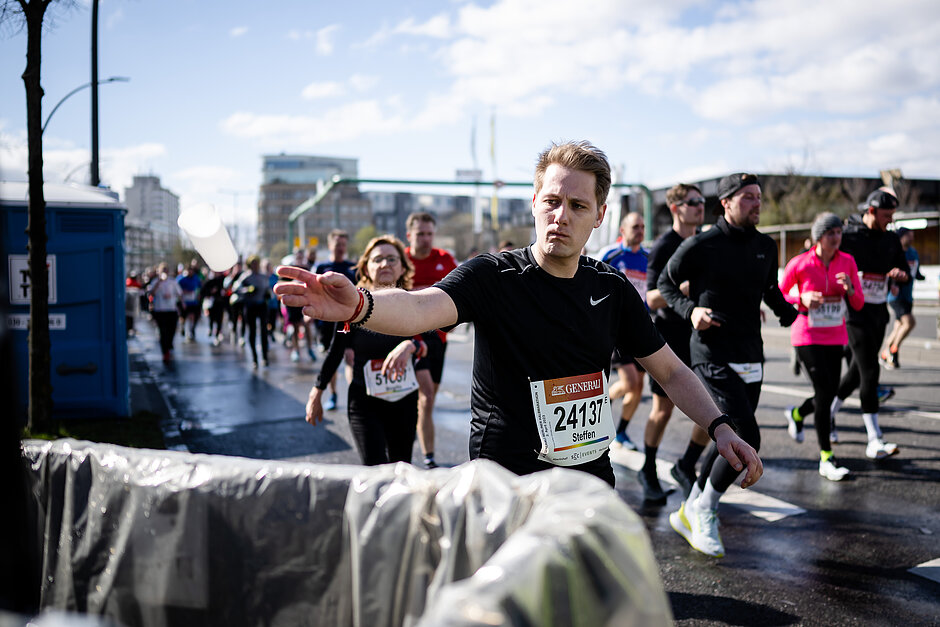
Waste separation
Besides avoiding waste, waste separation is one of our most important goals in terms of environmental protection.
That is why we have implemented a waste separation concept both in the start-finish area and at the EXPO.
We have analysed waste streams in the start-finish area and placed the required bins based on this. In addition, we pay particular attention to ensuring that packaging waste is separated by type in areas that we can easily control, for example when handing out medals.
We have also developed a concept at our EXPO to make it as easy as possible for visitors to put their waste in the right bin.



















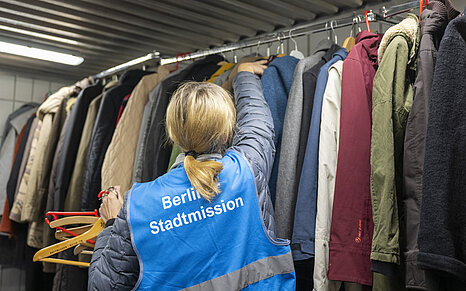
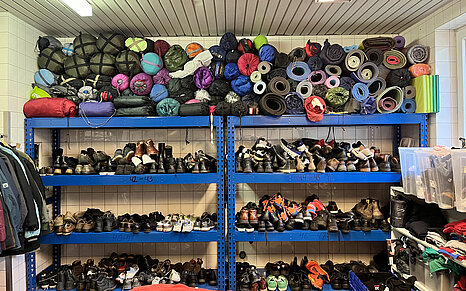
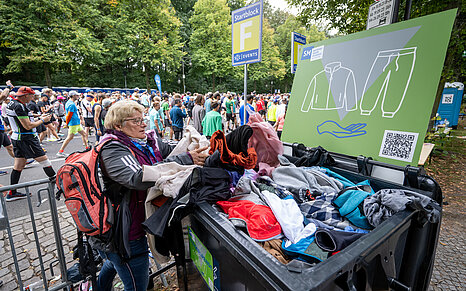
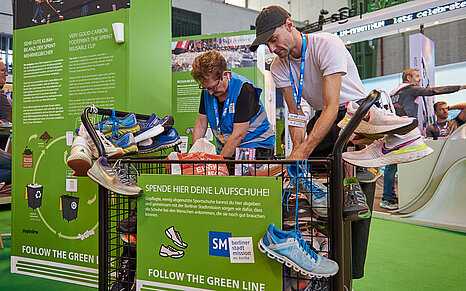
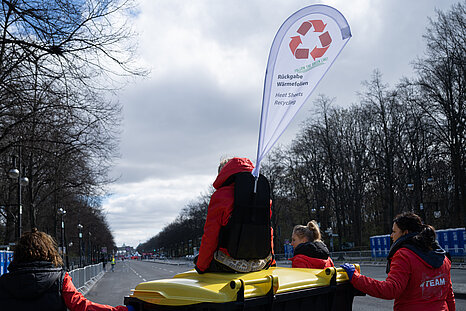
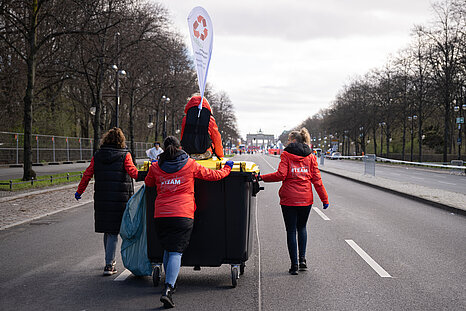
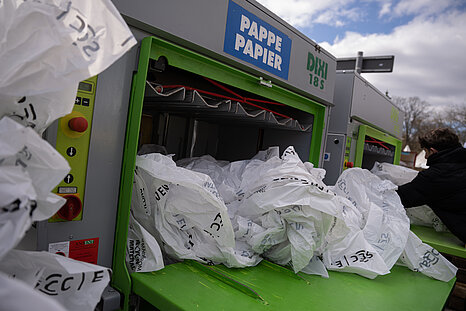







![[Translate to Englisch:] [Translate to Englisch:]](/fileadmin/media/sponsors/Peloton_Wordmark_RGB.svg)